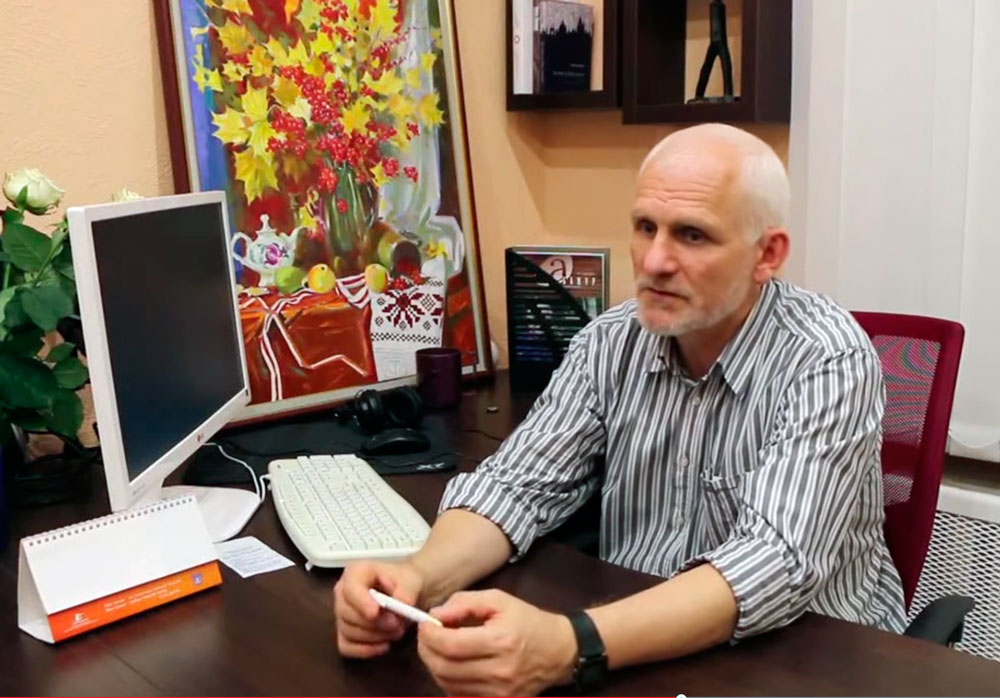Ales Bialiatski complains to Constitutional Court concerning labour discrimination of prisoners
The head of the Human Rights Centre "Viasna" Ales Bialiatski requests the Constitutional Court to consider the question of infringement of the rights of convicts by not giving them vacations, and take measures to eliminate the legal collisions.
In his appeal sent to the Constitutional Court on November 10, the human rights activist points out that the conditions for granting the leave to convicted persons differ from the conditions under which such a holiday is provided to other citizens.
The essence of the legal conflict is as follows. In accordance with Part 4 of Article 99 of the Criminal Executive Code of the Republic of Belarus, the right to paid leave is provided for the convicted individuals, who worked not less than eleven months in a calendar year. Thus, if the convicted person has worked less than eleven months in a calendar year, this time is not taken into account and the leave for the time of work is not provided at all. The labour legislation, resolves this issue differently: in accordance with Article 153 of the Labour Code, working holiday is given to a worker every year. According to article 163 of the Labour Code, the working year for which the working holiday is provided is a period of time equal to the duration of the calendar year, which is calculated for each employee starting from the date of employment. The labour holidays (the primary and the secondary one) for their first year are provided no earlier than after six months of work for the employer, except in certain cases provided for in Article 166 of the Labour Code. Thus, the whole time of work of employees working under an employment contract is taken into account when granting a leave.
In his appeal, the former political prisoner draws an example: "In 2012, I was serving my sentence at the PC-2, I worked in prison for 9 months (from 01.04.2012 to 31.12.2012), and in accordance with the penal law, had no right to a working holiday. A paid leave was granted to me only in 2014 for 12 months of work in 2013. In 2014, I also worked from 1 January to 20 June, and didn't receive a monetary compensation for the unused holiday."
The human rights activist believes that such legal regulation violates the constitutional principle of legal equality of all before the law and the principle of non-discrimination enshrined in Article 22 of the Constitution of the Republic of Belarus, creates unequal conditions for inmates working in prison and those who work at liberty. In addition, he points out that the norm of Part 4 of Article 99 of the PEC unreasonably and disproportionately limits the convicted employee's right to rest, guaranteed by Paragraph 1 of Article 43 of the Constitution, and immediately reminds about the principle of the proportionality of restrictions on rights and freedoms of the individual conforming to the requirements of a constitutional state, which follows from the provisions of paragraph 1 of Article 23 of the Constitution.
"The failure to provide a leave for hours actually worked during the calendar year, when this period is less than eleven months (as provided by Part 4 of Article 99 of the PEC), is not dictated by the interests of national security, public order, morality, health, rights and freedoms of others persons (legitimate aims restrictions under Article 23 of the Constitution), is not proportionate and necessary to achieve the purposes of criminal responsibility, and leads to discrimination of convicted in comparison with other citizens," concludes Ales Bialiatski in his address.
Chair of "Viasna" considering the issue raised in the context of the overall situation with the use of forced labour in Belarus. "The authorities began a broad campaign against parasitism. Forcing people to work, they do not want to pay fairly for it. And in the case of prisoners the payment for work resembles mockery,” comments Ales Bialiatski. “For example, my monthly salary for the last time in the colony, was just 20-40 thousand roubles after all deductions. And no one cares that a prisoner cannot buy anything for this money, or how he can pay the mandatory accrued expenses for it. Not only prisoners are robbed, their families, who have to support them, are robbed too. The prisoners have to work hard for a plate of soup, as silent slaves on plantations. "Debtors" to the state are deprived of amnesty, parole, the number of their meetings with their families is reduced, they aren't transferred to softer regimes of serving their times, they are pressurized with the aim to squeeze the last penny from them. The prisoners work for months, without having the right to rest. Now, the whole country is being turned into one large prison. We are returning to the rightless times of the Stalin era."
In his appeal to the Constitutional Court the human rights activist declares the need to review the constitutionality of certain provisions of Article 99 of the Criminal Executive Code of the Republic of Belarus, including a part of the procedure for determining the time limit for which the convicted persons must work to be eligible for annual leave, to establish inconsistency of this provision with the Constitution of the Republic of Belarus.
Ales Bialiatski asks the authority which carries out constitutional review, to confess the existence of the legal uncertainty in the PEC (there is no indication that the working year for which the labour holiday is provided is a period of time equal to the duration of the calendar year, but calculated for each convict since the day of engagement in work) and formulate a proposal to the legislative bodies on the need to eliminate this defect in the PEC.


















